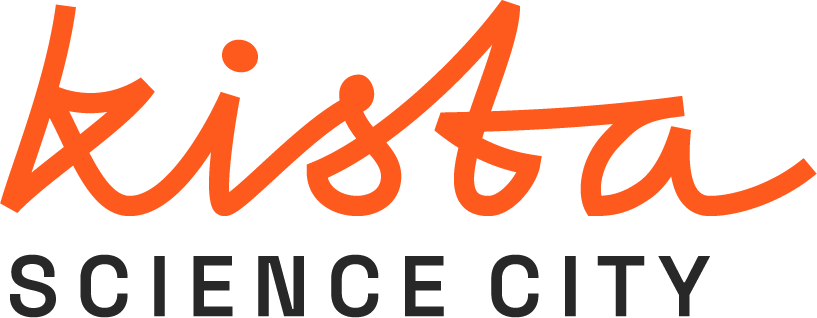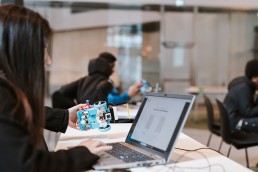Updated December 2025
Made in Kista: AI on Swedish terms
Artificial intelligence is moving beyond clever applications and into the systems that run our societies. As it becomes embedded in healthcare, finance and education, a central question emerges: where does the technology run, and who controls the data behind it?
For Europe, and for Sweden, the answer is increasingly about AI sovereignty. The EU’s new AI Act is raising the bar for security and accountability, while organisations also want reassurance that sensitive data stays within national borders. Together, these demands are accelerating the push for secure, local solutions. In Kista, that shift is visible with new facilities and projects underway.
Secure AI in Kista
This summer, 6G AI Sweden launched a sovereign AI cloud at atNorth’s data centre in Kista. Built on NVIDIA’s reference architecture and powered by H200 GPUs, the facility gives Swedish organisations access to advanced AI capacity within national borders. The operation complies fully with GDPR and the AI Act, and runs entirely on renewable energy, with surplus heat recycled into Stockholm’s district heating grid. With a multi-billion-SEK hardware investment, the project demonstrates long-term commitment and offers a local alternative to foreign-controlled infrastructure.
The need for such alternatives is increasing. Even when data is stored on servers in Sweden, it can fall under foreign legislation if the provider is headquartered abroad. The US Cloud Act is one example, allowing American authorities to request data from US-owned companies regardless of where their servers are located. In an uncertain geopolitical environment, this legal distinction has become central for public institutions and regulated sectors working with sensitive information.
This is the challenge 6G AI Sweden aims to address. As a Swedish-owned provider operating on Swedish territory, the company gives organisations a way to run sensitive or regulated AI workloads in an environment aligned with domestic and EU legislation. The investment in high-performance compute also reflects a broader shift: the need to build capability across the AI stack, from physical infrastructure to the services and applications built on it.
However, the move toward sovereign AI is not about cutting ties with global cloud providers. Large global cloud providers (hyperscalers) will remain essential, and Sweden has no realistic path to replacing them at scale. What matters is having secure domestic options for information that requires stronger protection. For most organisations, this points to a hybrid future where sensitive workloads run locally while other operations remain on international platforms.
Another company, Berget AI, has opened Sweden’s first fully Swedish-owned AI infrastructure and inference service. The facility, also located in Kista, is designed to ensure that no data leaves the country, offering a way for organisations to avoid exposure to foreign legislation. Within months of launch, Berget AI was trusted by Riksbanken with sensitive workloads — a clear signal that their services meet the needs of Sweden’s most security-conscious institutions.
Taken together, these investments underline that Sweden’s sovereign AI capacity is no longer a vision but a resource being built in practice.
From ambition to adoption
Europe’s reliance on non-European infrastructure has long been viewed as a vulnerability, limiting control over both security and data. The AI Act is designed to change that, setting clearer standards for traceability, risk management and accountability. For Swedish organisations, the challenge is now less about knowledge and ambition, and more about moving from isolated pilots to large-scale use on platforms that meet these requirements.
This is where domestic infrastructure becomes crucial. Local providers anchored in Swedish and European legislation lower the threshold for public institutions and regulated sectors to deploy AI responsibly. They offer an environment where security, jurisdiction and compliance are built in from the start.
Sweden is well positioned to build and maintain this capacity over time. Low-cost electricity and a cold climate lower operating costs for energy-intensive AI workloads. Combined with stable national governance and a mature innovation ecosystem, these factors create strong conditions for long-term investment in domestic AI infrastructure.
By expanding sovereign infrastructure and anchoring capability locally, Sweden can move from early experimentation to broad adoption in ways that ensure trust, competitiveness and resilience. The capacity now being built in Kista is one example of how this transition is taking shape, giving Sweden the opportunity to develop and deploy AI on its own terms.
Related Articles
December 9, 2025
Understanding online risks: Lisa Kaati’s research at DSV in Kista
The boundaries of conflict are shifting. Today, national security isn’t just…




